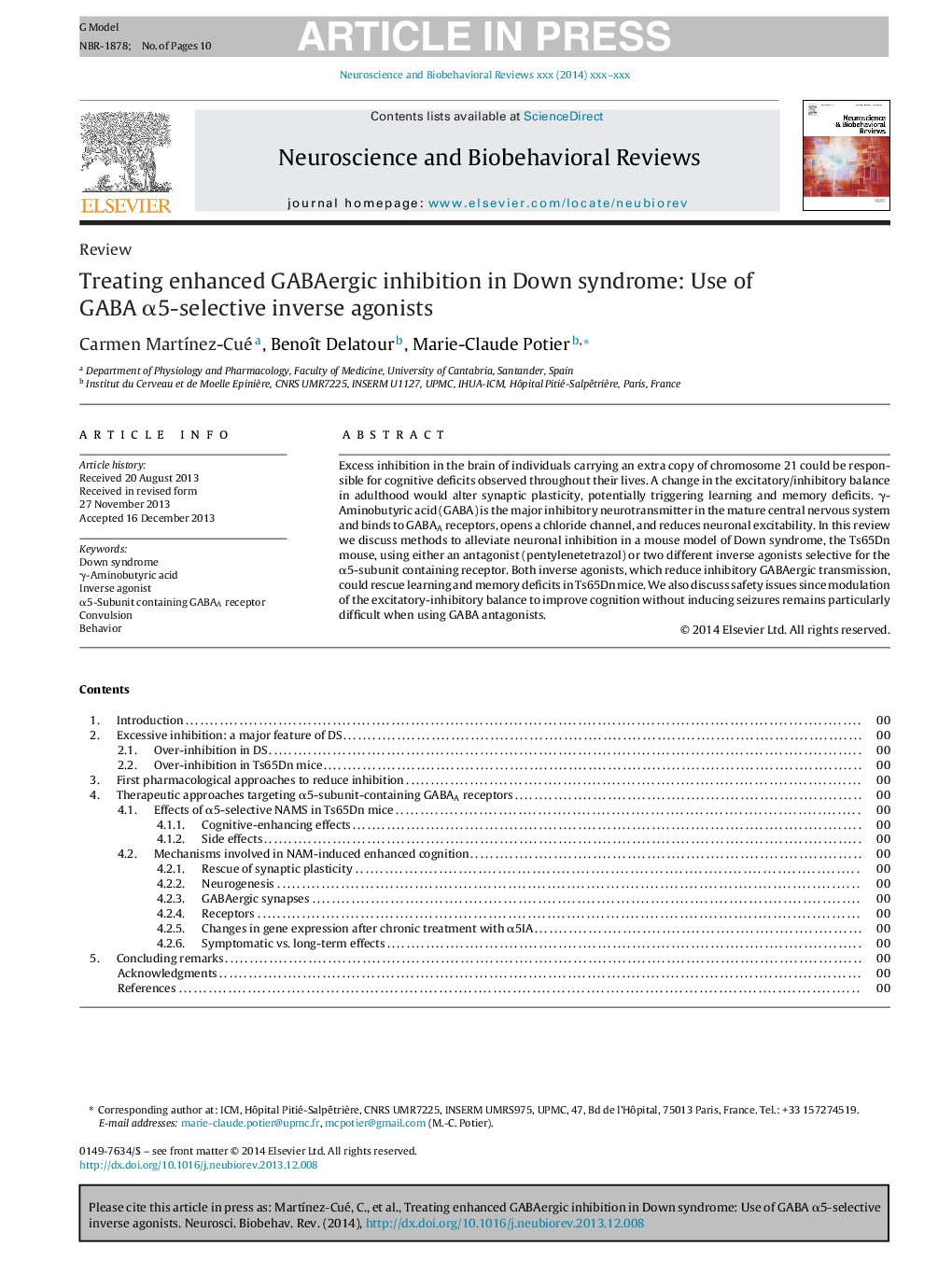| Article ID | Journal | Published Year | Pages | File Type |
|---|---|---|---|---|
| 10461664 | Neuroscience & Biobehavioral Reviews | 2014 | 10 Pages |
Abstract
Excess inhibition in the brain of individuals carrying an extra copy of chromosome 21 could be responsible for cognitive deficits observed throughout their lives. A change in the excitatory/inhibitory balance in adulthood would alter synaptic plasticity, potentially triggering learning and memory deficits. γ-Aminobutyric acid (GABA) is the major inhibitory neurotransmitter in the mature central nervous system and binds to GABAA receptors, opens a chloride channel, and reduces neuronal excitability. In this review we discuss methods to alleviate neuronal inhibition in a mouse model of Down syndrome, the Ts65Dn mouse, using either an antagonist (pentylenetetrazol) or two different inverse agonists selective for the α5-subunit containing receptor. Both inverse agonists, which reduce inhibitory GABAergic transmission, could rescue learning and memory deficits in Ts65Dn mice. We also discuss safety issues since modulation of the excitatory-inhibitory balance to improve cognition without inducing seizures remains particularly difficult when using GABA antagonists.
Related Topics
Life Sciences
Neuroscience
Behavioral Neuroscience
Authors
Carmen MartÃnez-Cué, Benoît Delatour, Marie-Claude Potier,
